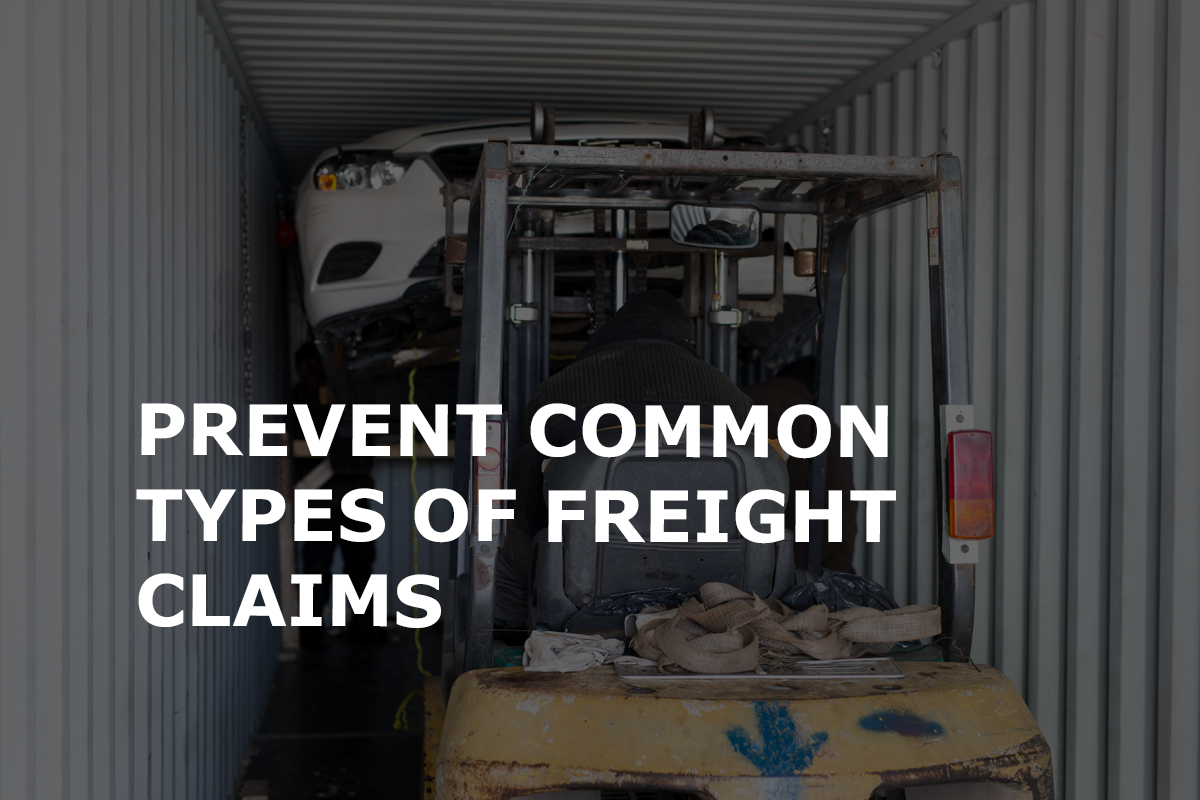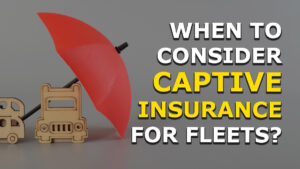A freight claim is a breach of contract claim that the shipper or consignee can make against the transporter or carrier for damage, loss, or shortage.
Basically, the contract between the transporter and the claimant reflects that the transporter will ship the goods, of whatever type, from location A to location B in the same condition in which they were put into the transporter’s care.
The problem with freight claims beyond losses in profit include:
- Increased insurance premiums because of claims on loss-run reports
- Broker doesn’t pay you for the load until the claim goes away
- Bad reputation if too many claims
- And more
So, what kind of freight claims are there and how do you avoid them?
Common types of freight claims
There are six common types of freight claims:
- Refused claim: If a shipment is delivered, but is the wrong merchandise, wrong address, or damaged, the receiver can refuse to accept the shipment.
- Loss claim: a delivery shows it was made, but the recipient didn’t receive it.
- Damage claim: visible damage to the goods or the containers that hold the goods.
- Concealed damage claim: damage to the goods that aren’t obvious at the time of delivery. A claim like this should be filed within 5 days, as that is the window most freight carriers require.
- Shortage claim: there is less amount of shipped cargo from taking a load to delivering the load.
- Concealed shortage claim: while there is a correct amount of pallets shipped, there is not enough boxes on one of the pallets as it was unseen due to the pallet wrapping.
10 ways to prevent freight claims
While proactive safety is always important for your business, there are things your drivers can do to prevent freight claims from hurting your bottom line.
These include:
- Drive with care: If possible, prevent harsh braking, and harsh accelerating can all move and ship the product in the trailer.
- Proper cargo securement: To prevent freight shifting during transport, your broker may recommend a way to “properly” secure the load. But should you take their recommendations to heart? No. For example, the broker may recommend using two load bars to secure the load. But, especially if transporting a load up a road with a lot of curves or hills, consider using two load locks on e-tracks instead to secure the load well.
- Proper pre-trip inspections: Proper cargo securement also includes trailers inspected for leaks, broken floorboards, damaged tarps or straps, etc. to make sure the cargo is secured during transport.
- Use quality locks: Leaving a loaded trailer unattended at a truck stop, rest area, or in a shopping center parking lot is a good way to have it stolen. You can help protect your equipment and cargo by using quality locks and not leaving your trailer unattended.
- Take photos of your cargo: Do this right after loading before closing your doors, right after opening the doors before unloading, and photos of the seal on the cargo.
- Document everything: Sometimes cargo is loaded poorly or already damaged. Talk with the broker and receiver to make sure it is okay to transport this way. Photos and written communication that is documented is important. If the receiver says the shipment of the damaged loaded cargo is okay, get this agreement in writing by text or email. This is also important for reefers and broker/receiver load temperature discrepancies. If you have email confirmation of what the broker told you to do, then the receiver cannot blame you for any issues.
- Report discrepancies immediately: Driver should notify their company immediately before you leave the loading or unloading facility to help give your company, the shipper, receiver, and other parties an opportunity to resolve issues while the cargo can still be inspected.
- Seal intact: Who is to say that the driver didn’t break the seal of some cargo and caused damage to the contents? To prevent these claims, make sure you have the receiver taking the load write “seal intact” when accepting the load.
- Pay freight charges: While you may be irritated and tempted to withhold payment on an invoice that involves damaged goods, the Carmack Amendment regulations state the claim must have a paid invoice attached.
- Keep the freight: Never discard the damaged freight until the claim has been fully resolved. Just remember that the carrier has the right to take ownership of and salvage the freight if full claim value is awarded.
How to file a freight claim
A freight claim against a carrier is a legal demand for payment and requires a specific process to be followed that can be found in the carrier’s tariff or on the bill of lading.
There are four significant components when filing a freight claim:
- The freight shipment must be identified (Pro number, shipper’s number, vehicle number, origin date, delivery date, and commodity description) so that the carrier can investigate
- Record the type of loss or freight damage
- Record the amount of the freight claim, or estimate
- A demand for payment must be made
These must be completed within the specific time frame stated within the contract or tariff, which is usually within 9 months of the delivery.
When filing a claim, you must provide as many supporting documents as possible, that could include:
- Original bill of lading (BOL)
- Paid freight bill
- Proof of the value of the commodities lost or damaged
- Inspection Reports
- Inspection requests
- Temperature reports
- Impact report
- Lab analysis
- Packaging certifications
- Weight certificates
- Carrier manifest (loading tallies)
- Notification of loss
- Waiver for inspection (by carrier)
What is truck cargo insurance coverage and who is it for?
In addition to covering your vehicles, it is just as important to protect the cargo that you are hauling, whether it is yours or a clients’ cargo.
Truck Cargo coverage insures the contents of the trailer, temperature-control machinery, and other appliances or accessories that keep cargo secure. Coverage is custom evaluated for the type of commodities hauled and the requirements of the shipper.
All Risk and Broad Form Policies:
- Reefer breakdown
- Loading and Unloading
- Debris removal
- Pollution clean-up
- Aggregate deductibles
- Earned freight charges
- High valued commodities requiring limits of $250,000 per vehicle or higher
Unfortunately, there is no standard freight insurance policy that a carrier can purchase and be 100% protected.
Freight insurance just doesn’t provide protection against all losses a carrier can be responsible for under the Carmack Amendment or common law.
Need a Commercial Truck Insurance Quote?
The worst situation to be in is getting bad commercial truck insurance coverage and being committed to it for a year when one accident can ruin your business.
We recommend you start a custom quote online or call us directly to speak with a licensed trucking insurance professional.
Before we can get you an estimate, we are going to need some information.
Fill out a complete quote or quick quote to get started.
If you have any questions or concerns, please call us at 800.724.5523 or email info@cnsinsures.com.






